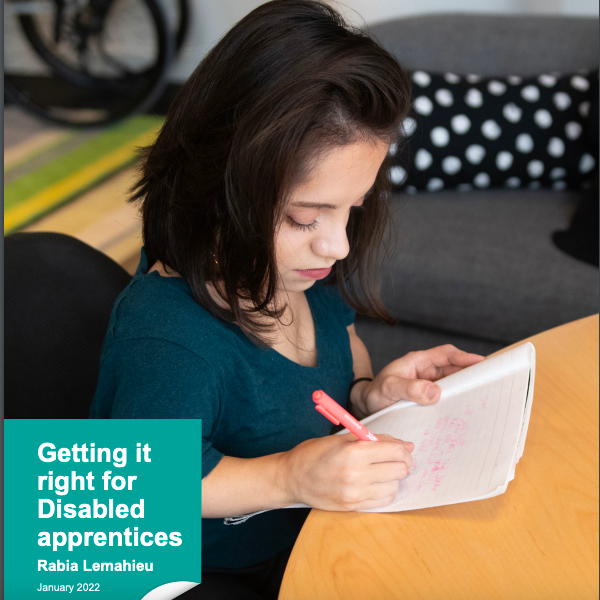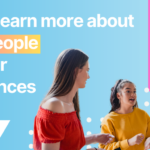Disability Rights UK have launched their Getting It Right For Disabled Apprentices sharing important insights.
This report explores the experiences of young Disabled people who are using, or have used, apprenticeship schemes as a route into employment. It looks at what works well and covers people’s experience of training providers and employers, as well as the support they received, including the government’s Access to Work scheme.
The report has taken experiences from a network of Disabled people who are undertaking or have finished an apprenticeship. The Network includes people who have done part and full time apprenticeships across a range of disciplines including media, business administration and working with young people.
Key Findings:
Choosing an apprenticeship and the best parts of it
• Apprentices gave a wide range of reasons for choosing an apprenticeship
• These included being advised to by mentors or colleagues, building confidence and working towards a formal qualification whilst earning a salary.
Language and terminology
- Apprentices were concerned about how they were described as Disabled people
- They had strong views but didn’t always agree on which terminology to use
- They highlighted the importance of individual views and wanted employers to be proactive and ask about people’s personal preferences.
Sharing information on disability
- Apprentices had a range of views about talking about their conditions with employers
- They felt it was important for the individual to be in control of those conversations
- They wanted employers to ask open questions about how people could be best supported to do their job well.
Reasonable adjustments and support
- Some apprentices were not aware of what support was available, or that reasonable adjustments were a legal requirement
- Most said that they received good support from employers and training providers, but some were worried about instigating a conversation on the support they needed
- They wanted issues about support they needed at work to be raised at an early stage, and to be part of an ongoing conversation
- Some apprentices thought the idea of a ‘workplace adjustment’ document for individuals was useful.
Lessons for employers and training providers
- Apprentices wanted conversations about disability to be normalised, and for organisations to demonstrate they were inclusive
- They highlighted the importance of disability equality training to help embed a culture of inclusion in organisations
- They spoke about the initiatives they found helpful, such as mentoring schemes.
The Access to Work scheme
- Most apprentices had experience of the Access to Work scheme and had equipment or support funded through it
- Many highlighted the delays they experienced, waiting for equipment to arrive and be put in place
- Some said young Disabled people should be told about the scheme early so they knew about it when they were talking to potential employers.
Ideas for change
- Organisations should develop a culture which welcomes Disabled people
- Language is important and organisations should take a person-centred approach
- Conversations about disability, health conditions and impairment should be normalised and led by Disabled people
- Discussions about reasonable adjustments should be part of regular conversations, with employers having clear processes to follow
- Organisations should make sure they are fully informed about the Access to Work scheme, and Disabled people should be informed about it from a young age.












